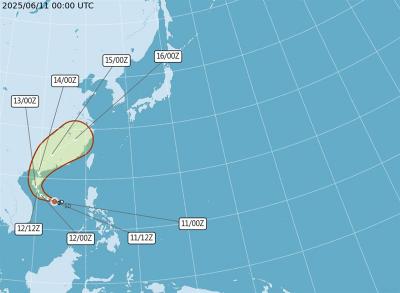Investments made by the Labor Pension Fund netted record gains of NT$478.5 billion (US$15.2 billion) last year, the Bureau of Labor Insurance (BOLI) said yesterday.
In a statement, the BOLI said the fund made a 12.6 percent return on investment last year, surpassing the previous high of 11.84 percent set in 2009.
Last year’s gains also exceeded the previous annual record of NT$283.7 billion from 2021, the Bureau of Labor Funds (BOLF) said, which manages the fund’s investments.

Photo: Lee Chin-hui, Taipei Times
Based on current totals, more than half of the 12.72 million people enrolled in the fund would have their pensions boosted by more than NT$20,000, with 25.1 percent gaining more than NT$50,000.
The amount each person’s pension is topped up by depends on the length of enrollment and the premium rate, the BOLI said.
Information on how gains made last year have affected enrollees’ pensions was released yesterday, the BOLI said.
Workers could view the information through various channels, such as verifications through mobile phones, citizens’ digital certificates and online labor insurance certificates, the bureau said.
Alternatively, workers could also go to BOLI offices for information about their gains last year, the bureau said.
Beginning today, workers could also check changes to their pensions using ATM cards issued by Bank Land of Taiwan, E Sun Commercial Bank, Taishin International Bank, Taipei Fubon Commercial Bank, First Commercial Bank and Chunghwa Post, the BOLI said.
As of the end of last year, the combined value of the funds managed by the BOLF, including the new Labor Pension Fund, the Labor Retirement Fund, the Labor Insurance Fund, the Employment Insurance Fund and the Arrears Wage Payment Fund, totaled NT$719.37 billion, constituting a 12.8 percent annual rate of return.
The BOLF said that about 46 percent of the gains posted by these funds last year came from investments in the local stock market.
The TAIEX, the Taiwan Stock Exchange’s weighted index, soared 26.8 percent last year on the back of enthusiasm about artificial intelligence development and expectations that the US Federal Reserve would initiate a rate-cut cycle.

A magnitude 6.4 earthquake struck off the coast of Hualien County in eastern Taiwan at 7pm yesterday, the Central Weather Administration (CWA) said. The epicenter of the temblor was at sea, about 69.9km south of Hualien County Hall, at a depth of 30.9km, it said. There were no immediate reports of damage resulting from the quake. The earthquake’s intensity, which gauges the actual effect of a temblor, was highest in Taitung County’s Changbin Township (長濱), where it measured 5 on Taiwan’s seven-tier intensity scale. The quake also measured an intensity of 4 in Hualien, Nantou, Chiayi, Yunlin, Changhua and Miaoli counties, as well as

Taiwan is to have nine extended holidays next year, led by a nine-day Lunar New Year break, the Cabinet announced yesterday. The nine-day Lunar New Year holiday next year matches the length of this year’s holiday, which featured six extended holidays. The increase in extended holidays is due to the Act on the Implementation of Commemorative and Festival Holidays (紀念日及節日實施條例), which was passed early last month with support from the opposition Chinese Nationalist Party (KMT) and Taiwan People’s Party. Under the new act, the day before Lunar New Year’s Eve is also a national holiday, and Labor Day would no longer be limited

COMMITMENTS: The company had a relatively low renewable ratio at 56 percent and did not have any goal to achieve 100 percent renewable energy, the report said Pegatron Corp ranked the lowest among five major final assembly suppliers in progressing toward Apple Inc’s commitment to be 100 percent carbon neutral by 2030, a Greenpeace East Asia report said yesterday. While Apple has set the goal of using 100 percent renewable energy across its entire business, supply chain and product lifecycle by 2030, carbon emissions from electronics manufacturing are rising globally due to increased energy consumption, it said. Given that carbon emissions from its supply chain accounted for more than half of its total emissions last year, Greenpeace East Asia evaluated the green transition performance of Apple’s five largest final

The first tropical storm of the year in the western North Pacific, Wutip (蝴蝶), has formed over the South China Sea and is expected to move toward Hainan Island off southern China, the Central Weather Administration (CWA) said today. The agency said a tropical depression over waters near the Paracel and Zhongsha islands strengthened into a tropical storm this morning. The storm had maximum sustained winds near its center of 64.8kph, with peak gusts reaching 90kph, it said. Winds at Beaufort scale level 7 — ranging from 50kph to 61.5kph — extended up to 80km from the center, it added. Forecaster Kuan Hsin-ping